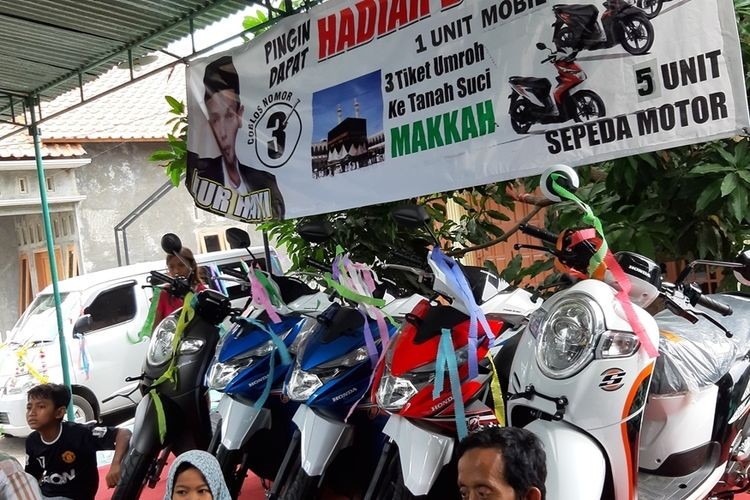Popular Reads
Top Results
Can't find what you're looking for?
View all search resultsPopular Reads
Top Results
Can't find what you're looking for?
View all search resultsRural autocracy
Village heads could become “little kings” that would no longer be able to differentiate between public and personal interests in exercising state power.
Change text size
Gift Premium Articles
to Anyone
I
ndonesia’s democracy is, again, under siege, and this time the attacks come from a group of public officials elected to rule more than 81,600 villages across the archipelago.
Thousands of village heads from across the country have held rallies in the capital demanding nothing but more power at their disposal. This is an unvarnished display of power play by the local elites in the guise of bureaucratic efficiency.
Donning their civil-servant uniforms, the elected bureaucrats have insisted that the policymakers in the executive and legislative bodies amend the 2014 Village Law to allow them to sit in office for a nine-year term. Under the current law, they are elected for a six-year term with a three-period limit, meaning that they can be in office for a maximum of 18 years.
If they get their wish, they will be able to stay in office for 27 years.
Such a demand is problematic on so many levels. It is requisite that we have a clear mechanism to have a regime change in every administrative level every five or 10 years to ensure that incumbents will not abuse their power to stay in power longer. To give village heads a chance to rule for 27 years is an affront to that very principle.
The argument posed by the village heads that a longer term would be good for regional development is far from convincing. If anything, the gambit is not worthy considering the serious damage it could inflict on our democracy at the grassroots level.
Concerns have been raised that these village heads could become “little kings” that would no longer be able to differentiate between public and personal interests in exercising state power, cementing further the patrimonialism of Indonesian politics.
It is not helping that they are raising the proposal now as political elites on the national level are gearing up for the 2024 general elections, fueling suspicions that they are using the elections as a political bargaining chip to achieve their goals.
President Joko “Jokowi” Widodo is said to have backed the idea, or at least has yet to categorically reject it. This is hardly surprising; the President’s loyalists have banked on the village heads’ support for their proposal to extend his term beyond 2024, which Jokowi has several times rejected in public.
Several lawmakers, who often rely on the local state apparatuses to boost their electoral performance, have also voiced their support for the village heads’ demand.
House Speaker Puan Maharani of the Indonesian Democratic Party of Struggle (PDI-P), for instance, said the House would review the matter thoroughly with the government. Similarly, Deputy House Speaker Muhaimin Iskandar of the National Awakening Party (PKB) said he would push for the 2014 Village Law revision to be listed under the National Legislation Program (Prolegnas) priority list for 2023. Just for the record, Muhaimin’s brother Halim Iskandar is the village and disadvantaged regions development minister.
Under the law, the government has since 2015 disbursed money directly to the villages. This year the village funds amount to Rp 70 trillion (US$4.68 billion), up from Rp 68 trillion last year.
Footage taken from the rallies purportedly show the village heads threatening the political parties that refuse to give them what they want. They claim to have the ability to mobilize local resources to shape the result of the general elections, which may be true because of the sociocultural values that grant them huge power on one hand and the relatively low education level of rural people on the other hand.
This is not just political blackmailing, this is a brazen attempt at collusion to undermine our hard-won democracy.
We strongly reject this preposterous proposal and call on the policymakers to set aside their short-term interests for the sake of protecting our democracy. No elected officials with considerable power should be allowed to reign in for decades. And it goes without saying that this basic rule applies to all, ranging from village heads to the President.











